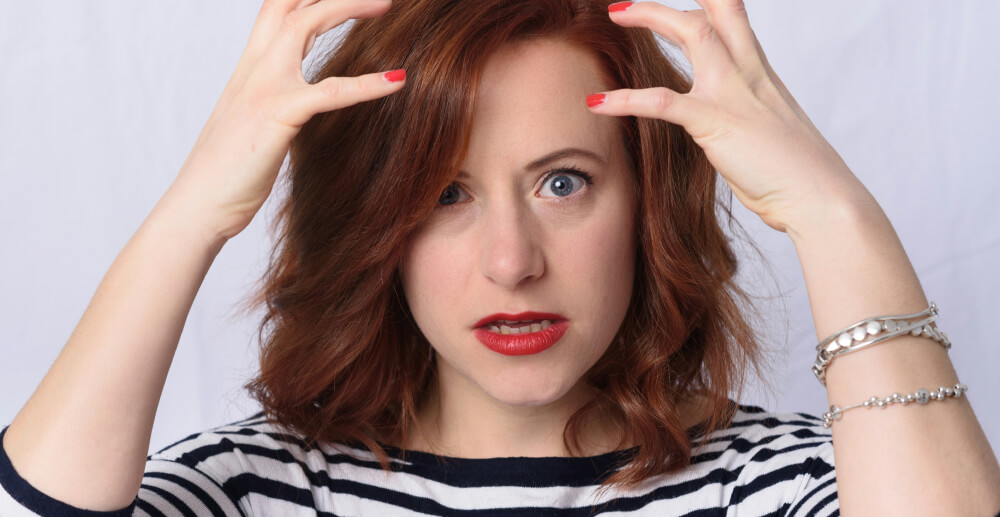How can you cope when your loved one is addicted? Jody Lamb shares her wisdom with Workit Health.
I’ve spent 40 years loving several people with substance use disorders. This experience has provided meaningful lessons:
1. You have one job in life: to take good care of you.
As the eldest daughter of a mother with alcoholism, it took me 26 years to recognize that my only job in life is to take good care of myself. Until then, I had been so busy trying to “fix” my mom and take care of our family—Dad, Mom, and my little sister—that I completely neglected this duty. Worse, by being the family’s self-identified martyr, I took away my loved ones’ dignity and power. Though I was well-intentioned, I tried to manage and control them for decades. By being so wrapped up in their lives, I prevented my mother and my co-dependent father from ever “falling,” which would have allowed the to help themselves up.
Like many eldest children of parents with substance use disorders, I took on adult responsibilities at a very early age. This was a normal reaction to the unpredictable environment. As I held our household together and hid the evidence of Mom’s addiction, I put myself last. I landed in Grownup Land without the basic skills necessary to thrive. I was always sleep deprived. I did not eat properly. I had severe anxiety and trouble with relationships.
Over the last 14 years on my healing journey as an adult child of an alcoholic, I’ve been focused on taking good care of myself—from the basics of sleeping and eating properly to pursuing personal goals and healing from traumatic experiences of the past.
2. Illness does not cherry-pick victims.
My mother is an exceptionally compassionate person. When sober, she is the ultimate giver and is always hyper-conscious of other people’s feelings. When my sister was little, my mother worked at the local school’s cafeteria. She’d tell the boy who was teased that his smile was outstanding. The quiet girl with dirty hair? My mother told her that she was great at drawing. She’d buy a winter coat for the kid whose parents couldn’t afford one.
And it isn’t just my mother. My favorite uncles are quick to help, quick to offer a joke, quick to give, and quick to be kinder than is necessary. They’ve also been gripped by addiction disorders of all varieties—alcohol, opioids, gambling—the list goes on. My cousins, like my mother and my uncles, are special. They’d give you their last dime.
My loved ones’ substance use disorders were secrets we did not discuss openly, so I was completely confused about what was happening in our family. Addiction was a term I’d heard only in news reports about criminals. I did not have the education that would have provided clarity and saved me a lot of pain!
As is the case with any tragedy, you can’t fully understand substance use disorder unless you experience it firsthand or secondhand as a loved one. That’s when all stereotypes are erased. It is a painful discovery that substance use disorders are like any illness—they afflict every ‘type’ of person. In my family, it seems to take the dearest of my loved ones—the exceptionally good ones.
3. You’re normal.
My entire life, I’ve longed to be “normal.” As a little girl, I thought we were the only ones in the world going through what we were. I was so ashamed. My uncle lost his job due to addiction and ended up on the streets. I knew my mother’s up-and-down, erratic behavior was NOT in line with how moms were supposed to behave. When sober, she was a loving mother. When drunk, she was angry and abusive. I felt that I caused it, and that it was my job to cure her. This distorted view—and lots of anxiety and other issues—led me to perpetually feel abnormal and weird compared to the rest of the world.
Fortunately, through my education and healing journey, I’ve found freedom in the discovery that I have had a completely normal reaction to everything that has occurred in my life. My brain is programmed to work the way it does because that is how I learned to survive and live as a young person. I am completely normal, and very far being alone in my experiences. In fact, every time someone shares their personal story about loving someone with a substance abuse story, it feels like a variation of my story.
4. Education = power.
When I was 26, I was so depressed. I’d spent my entire life trying to get my mother to stop drinking. I did everything I could think of to solve our problem. I tried to be a perfect daughter. I cleaned up all the figurative and literal messes to avoid stressors. I kneeled before Mom and pleaded through tears. I wrote countless heartfelt letters. I reached out to my mother’s siblings and coordinated their loving “we’re worried about you talks” with Mom. I was certain that I could find a way to get her to stop and get help so that we could all live happily ever after.
At no point in this lifelong endeavor did I recognize that trying to cure my mother was like trying to cast away cancer. I could not control my mother. Only she could accept help for herself. I also did not know that I needed help. In a state of powerlessness and desperation, I showed up at an Al-Anon meeting (a 12-step group for people whose loved ones have substance use disorders) seeking a solution for Mom and the others I loved. I quickly realized it wasn’t about my loved ones at all. Rather, I needed to heal. Myself. So I read every book I could find about substance abuse, alcoholism, the cycle of addiction in families, and the effects on those who love people with substance abuse disorders.
That education changed my perspective on everything. It gave me the kind of power I hadn’t realized I needed. My relationship with my parents dramatically improved. I “got” my mother in a way I never had before, and it helped me let go of the belief that I’d caused my mother’s drinking, and that I had any ability to control or cure her.
Education empowered me to also educate the rest of the family. This directly benefitted my mom, uncles, and cousins with substance abuse disorders. I learned how to take good care of myself. In doing that, I helped everyone around me.








